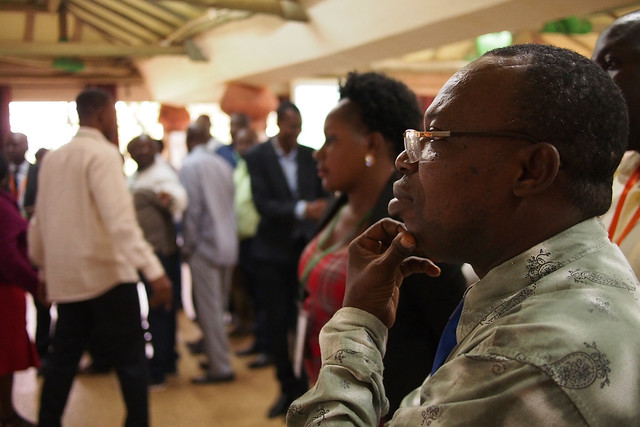By: Emma Cameron, GREAT Communications Specialist
The fourth GREAT course is set to begin the last week of July in Kampala, Uganda. This new approach to the course will offer unique learning and research opportunities, and allow GREAT to expand its impact across the globe.
Since 2016, Makerere University and Cornell University have worked together to produce GREAT Courses focused on gender-responsive approaches to plant breeding methods for specific types of crops. This GREAT course is particularly unique because it is the first course focused on gender-responsive plant breeding as a whole rather than focusing on a specific type of crop.
“Theme 4 of the GREAT course provides an opportunity to all scientists across a range of breeding commodities to be represented during the course. The plan is to reach scientists across a broad spectrum of crop commodities, towards building a critical mass of gender responsive researchers across sub-Saharan Africa,” said Brenda Boonabaana, GREAT trainer and lecturer at Makereke University.
This course, with a broader approach to gender-responsiveness in agriculture, will provide instruction, mentorship, and research opportunities to 35 participants divided between 18 teams from 16 countries including Uganda, India, Thailand and Ethiopia.
GREAT looks forward to collaborating with a diverse team of participants who come from various institutions including the World Vegetable Institute, International Livestock Research Institute, and the International Center for Tropical Agriculture. These teams represent a wide variety of projects and objectives from around the world. For example, the team from Togo is working on improving Sorghum Adaptation in West Africa with a Genomics-Enabled Breeding Network, while the team from Cameroon is studying determinants of Haricot Beans Commercialization by Smallholder Farmers in the Western Highlands of Cameroon. The team from India and Thailand is working on Improved Mungbean Harvesting and Seed Production Systems for Bangladesh, Myanmar and Pakistan. For profiles of all the participants, see the course bio book.

As part of the recently-concluded GREAT legumes course, participants had the opportunity to design and conduct research and present their initial results to their peers. This activity that helps them refine their approach to gender in their projects and institutions.
This broad and diverse approach to teaching gender-responsiveness in plant breeding has the potential to benefit participants in an unprecedented way.
This is the first year the GREAT course has accepted a team from Asia in addition to African countries. Teams from Central African Republic, Sierra Leone, and Zimbabwe are attending this course for the first time as well, giving the course the opportunity to expand its global impact through its community of practice. GREAT has strategically planned the new approach to the course and carefully selected this year’s participants in order to maximize the information and skills the teams will be able to apply to their respective projects. Makerere University and Cornell University look forward to hosting the upcoming course in July and determining the impact their innovative approach to the course will have.
“We are trying to reach as many scientists from the various crop backgrounds as possible, in anticipation that they will become gender responsive ‘ambassadors’ in their specific research commodities,” Boonabaana said. “In this way, we hope to enrich the community of practice across a wider spectrum of plant breeding.”





